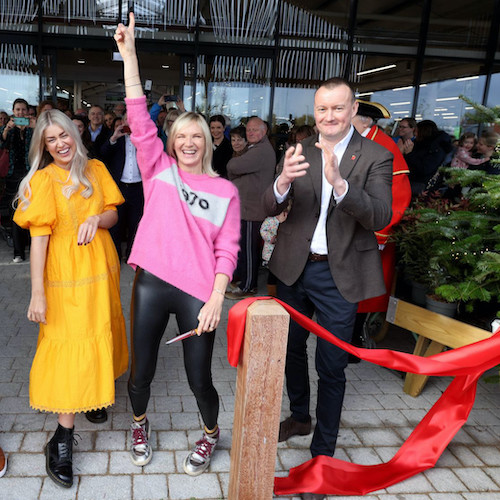Owner Zebra MTD signs up to low-carbon economy for calendar, greetings and gift group
Already firmly committed on the sustainability front, Carousel Calendars, Otter House and Calendar Club have taken another giant leap by signing up for the Science Based Targets Initiative (SBTI).
A collaboration between global disclosure charity CDP, World Resources Institute (WRI), Worldwide Fund For Nature (WWF), and the United Nations Global Compact (UNGC), the SBTI champions fact-based target-setting in the transition to the low-carbon economy.

Part of Zebra MTD, the calendar, greetings and gift group is now among the companies which have their targets published on the SBTI website, showing their clearly-defined pathway specifying how much and how quickly they need to reduce their greenhouse gas emissions, in the context of their longer-term business growth.
Targets adopted by companies to reduce greenhouse gas emissions are considered science-based if they are in line with the level of decarbonisation required to keep the global temperature increase below 2oC, and pursuing efforts to limit warming to 1.5 oC, compared to pre-industrial temperatures.

Zebra MTD has committed to reducing Scope 1 and Scope 2 emissions by 46% by 2030 from a 2019 base year, and to measure and reduce its Scope 3 emissions, and the business aims to encourage 50% of its key product suppliers to sign up to SBTI by 2025.
Steve Plackett, Carousel md and Zebra MTD director, said: “We’ve been working on improving our overall environmental performance for several years, mainly by identifying key environmental issues and setting targets to reduce our impact.
“We then moved on to measuring our carbon footprint, and had to decide if we should follow an offsetting route or an SBTI route – the latter focuses on cutting emissions and doesn’t allow offsetting.
“SBTI seemed more direct and structured, and we believe we couldn’t just pay to offset our carbon emissions, we had to take action to reduce those emissions, setting and following science-based targets and making real changes to our processes.
“Our primary drive, when we formed our environmental steering team, was a genuine one to improve environmental performance. As shareholders, we believe it’s the right thing to do. We believe it’s vitally important to every business and every employee, in every sector. We also believe we have a corporate responsibility to act now and not wait.”

Over the past three years the group’s environmental steering group has acted to improve the group’s carbon footprint, with the business making a number of changes including:
- Power sources changed to renewable electricity and biogas.
- Small fleet of cars changed to electric or hybrid.
- Added electric vehicle charging points in its car park.
- Cut plastics in products and packaging.
- Encouraged the use of sustainable materials in the supply chain.
- Implemented energy savings on premises, from LED lighting to changing thermostat temperatures, as well as making sure lights are off and doors closed.

Steve added: “As well as continuing the work to cut our emissions in line with our SBTI plan, we also will be engaging with our key product suppliers, which are mostly publishers and printers. Our aim is to strongly encourage them, and help them, to sign up to SBTI in line with our commitment.”
Top: Zebra MTD’s Steve Plackett and some of its more sustainable products





















